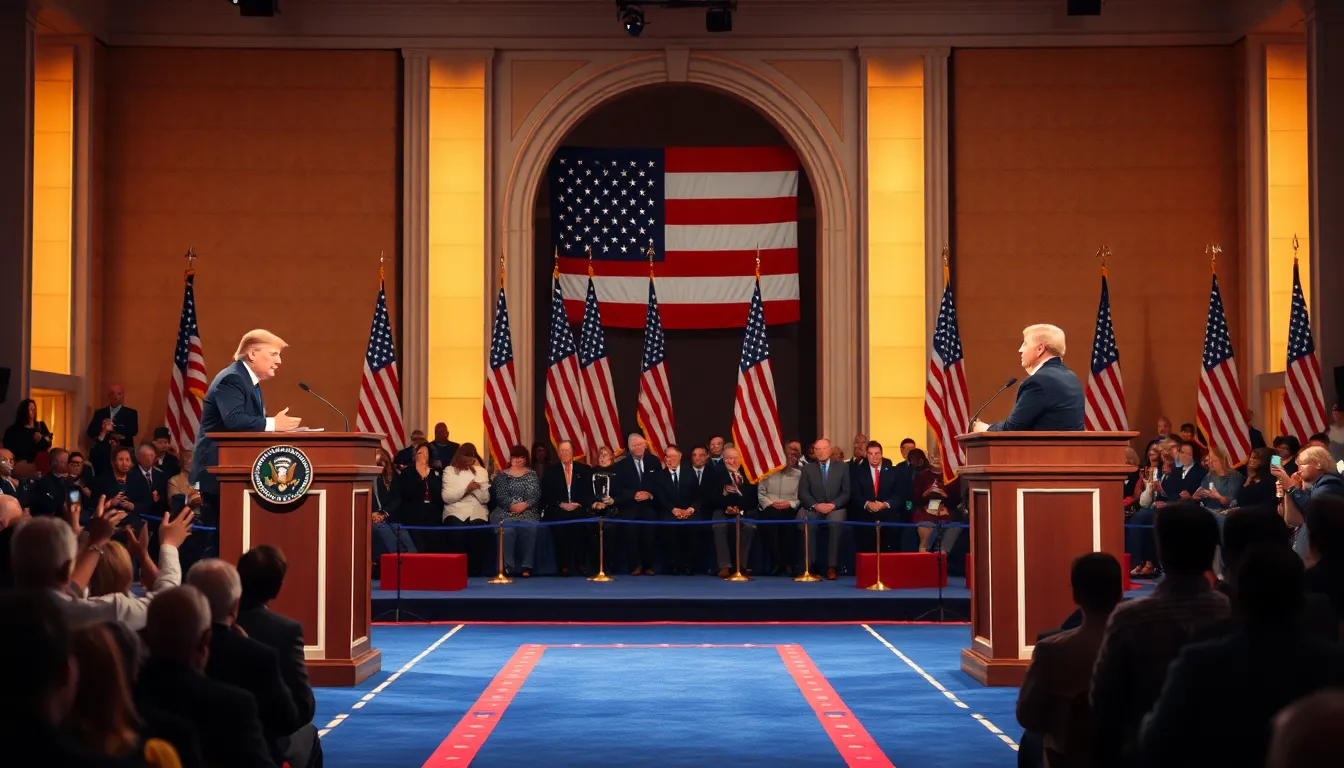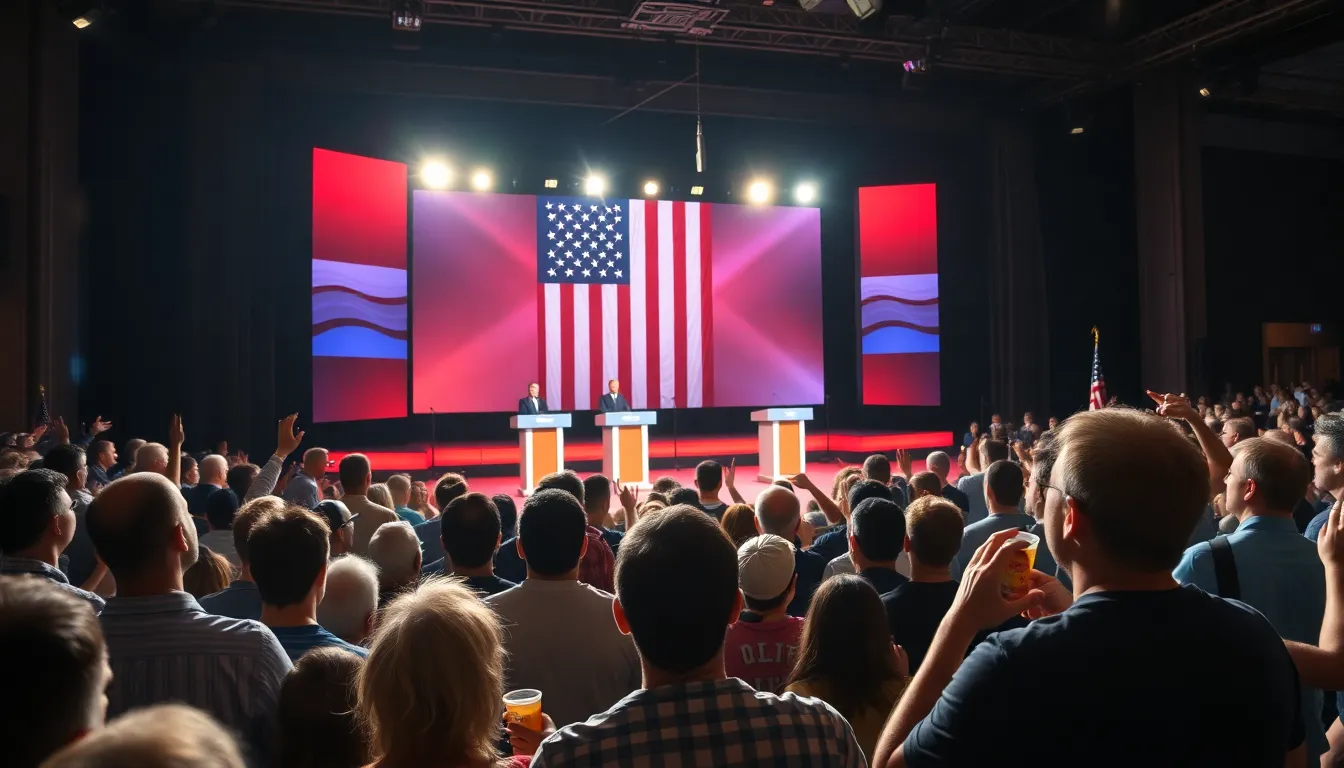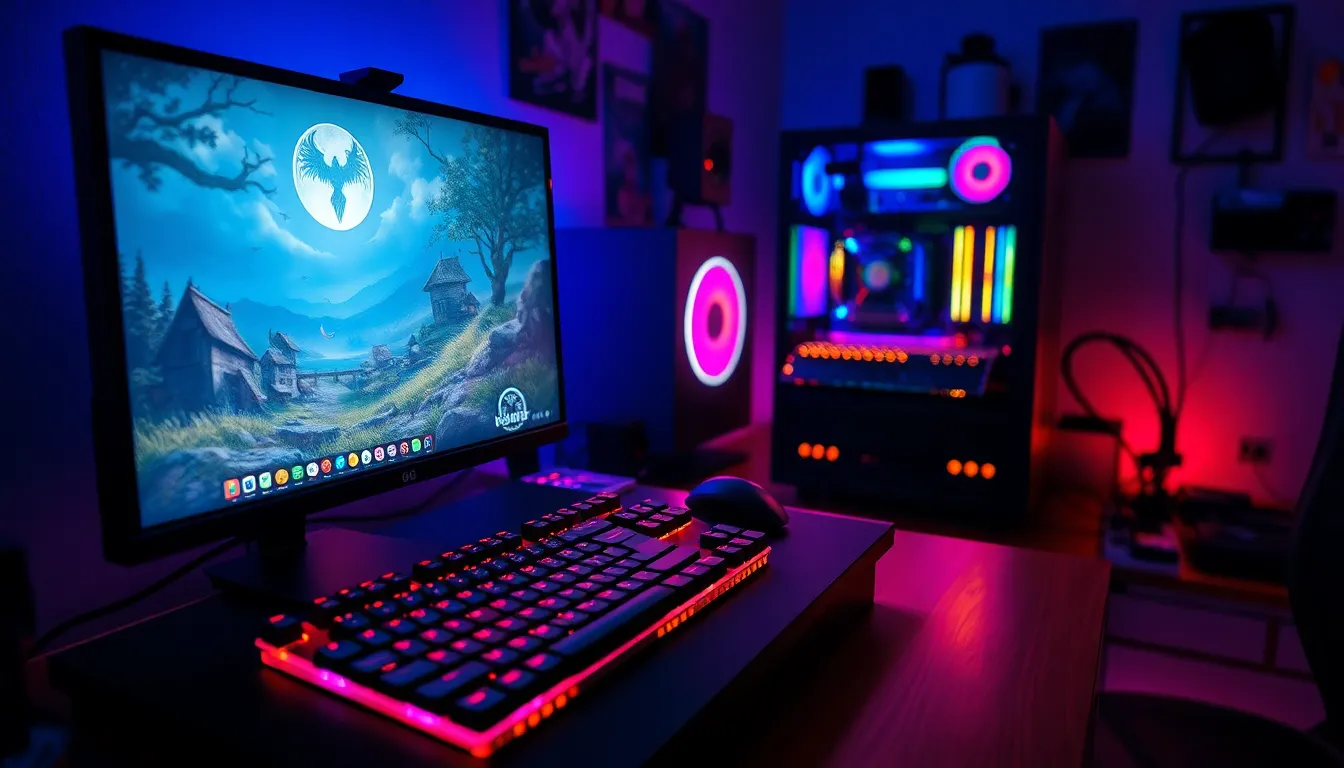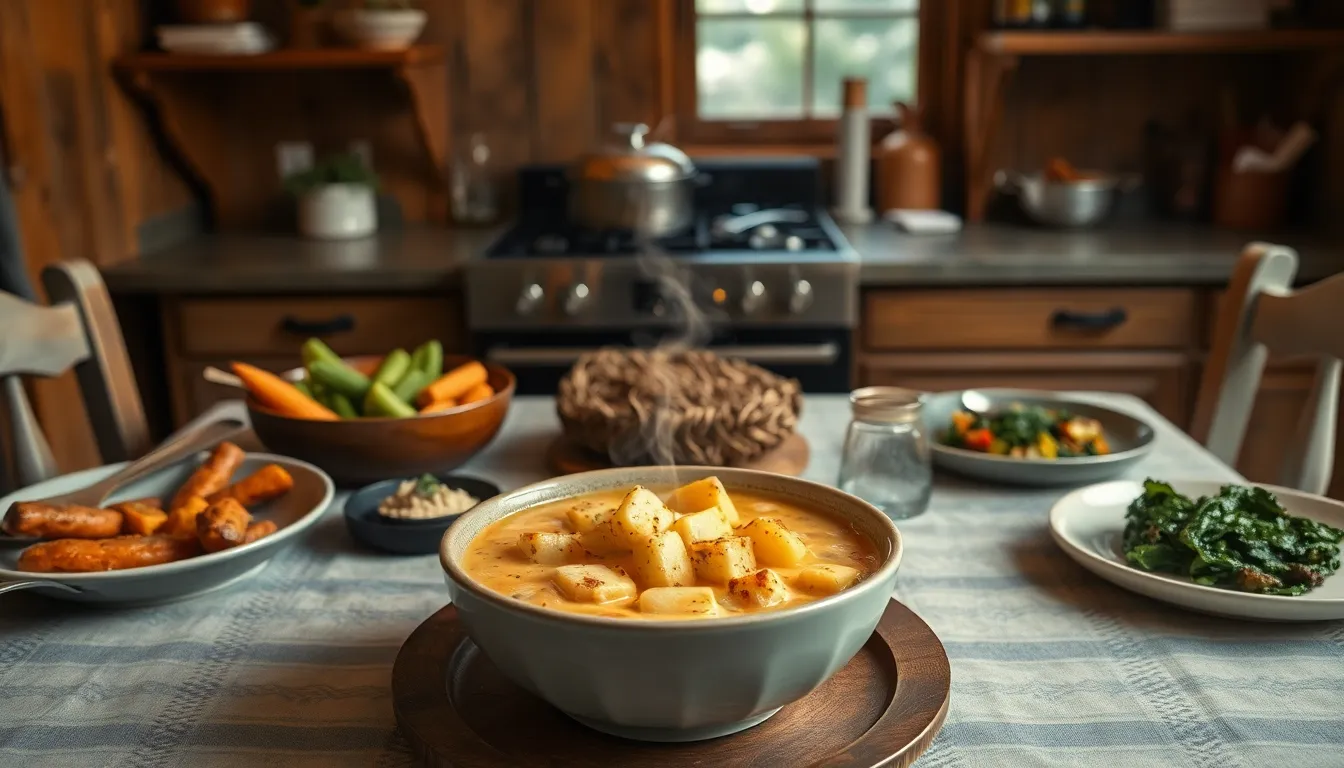As the clock ticks down to the much-anticipated vice presidential debate, viewers are buzzing with excitement. Questions swirl: How long will it last? Will it be a marathon of political sparring or a sprint to the finish? In a world where every second counts, knowing the duration could be the difference between grabbing popcorn or heading straight for the couch.
Table of Contents
ToggleOverview of the VP Debate
The upcoming vice presidential debate captures significant interest, particularly regarding its length. Scheduled for 90 minutes, the debate format includes a series of segments that encourage interaction between the candidates. Time allocation allows for 15 minutes of unmoderated conversation, followed by 4 minutes for closing statements.
Candidates engage in discussions that cover key issues, such as the economy, healthcare, and foreign policy. Each section aims to challenge the candidates’ positions while providing an opportunity for voters to assess their compatibility. Anticipation builds, as debates often shape public perception and influence electoral outcomes.
Viewers prepare for various strategies, whether they plan to take notes on the candidates’ responses or discuss points afterward with friends. Knowing the debate’s duration helps in organizing viewing parties or quiet family gatherings. Timing plays a critical role, as audiences may prefer to settle in with snacks before the event commences.
Overall, understanding the debate’s structure and length enhances the viewing experience, making it easier for audiences to engage meaningfully with the content presented. Insights gathered during the debate help voters make informed decisions leading into the election.
Importance of the VP Debate

The VP debate plays a vital role in the electoral process. It provides candidates an opportunity to present their views directly to voters.
Historical Significance
Historical precedents show that vice presidential debates have influenced public opinion. For instance, the 1984 debate between Geraldine Ferraro and George H.W. Bush highlighted gender dynamics in politics. Notably, the 2008 debate featuring Sarah Palin attracted significant attention, showcasing the unique influence of the VP role. These moments contributed to shaping not only voter perceptions but also the candidates’ paths to the presidency.
Impact on Elections
Elections often hinge on the effectiveness of debates. Candidates who perform well in VP debates may experience a boost in polls. Voters utilize these debates to gauge a candidate’s ability to handle pressure and articulate policy positions. Historical data indicates that memorable moments in these debates can sway undecided voters. Specific issues discussed, like the economy and foreign policy, resonate deeply, influencing voter preferences as election day approaches.
Format and Structure of the Debate
The debate follows a structured format aimed at fostering meaningful interaction. Each aspect of the format plays a critical role in engaging viewers and allowing candidates to convey their positions effectively.
Time Allocation
Ninety minutes comprise the overall duration of the debate. Within this timeframe, candidates participate in a series of exchanges designed to encourage direct conversation. Fifteen minutes are dedicated to unmoderated dialogue, promoting spontaneous interaction. Four minutes are reserved for each candidate’s closing statements, allowing for final remarks and key messages to resonate with viewers. This structured approach ensures that critical points are highlighted throughout the debate.
Key Topics Covered
Candidates address several significant topics during the debate. The economy, healthcare, and foreign policy stand out as central issues, providing ample opportunity for candidates to articulate their platforms. Each topic carries weight in shaping voters’ perceptions and decisions. Economy discussions focus on strategies for growth and job creation. Healthcare debates may touch upon access and affordability. Foreign policy conversations evaluate national security and international relations. Such coverage empowers voters to understand candidates’ stances comprehensively.
How Long Is VP Debate Tonight?
The vice presidential debate tonight spans 90 minutes, allowing for substantial engagement between candidates. Viewers anticipate a dynamic exchange, structured for clarity and impact.
Start Time
Tonight’s debate kicks off at 9 PM Eastern Time. Audiences should tune in early to settle in and prepare for the discussion. Each candidate’s opening statements will set the tone for the evening, creating context for the topics to follow.
Estimated Duration
This debate’s total duration is set at 90 minutes, ensuring ample time for candidates to address key issues. Within this timeframe, 15 minutes are reserved for an unmoderated conversation, allowing candidates freedom to discuss their platforms. Following this segment, each candidate receives 4 minutes for closing statements, summarizing their positions effectively. Overall, the structured format emphasizes meaningful dialogue, crucial for informing voters as the election approaches.
The upcoming vice presidential debate promises to be an engaging event with its structured format and critical topics. As it unfolds over 90 minutes, viewers will witness a dynamic exchange that not only highlights candidates’ positions but also shapes public perception. This debate serves as a vital platform for candidates to connect with voters and articulate their visions for the future.
With key issues on the table and opportunities for meaningful dialogue, audiences are set to gain valuable insights that could influence their decisions. As the debate approaches, preparation will enhance the viewing experience, ensuring that voters are ready to engage with the important discussions that will unfold.




